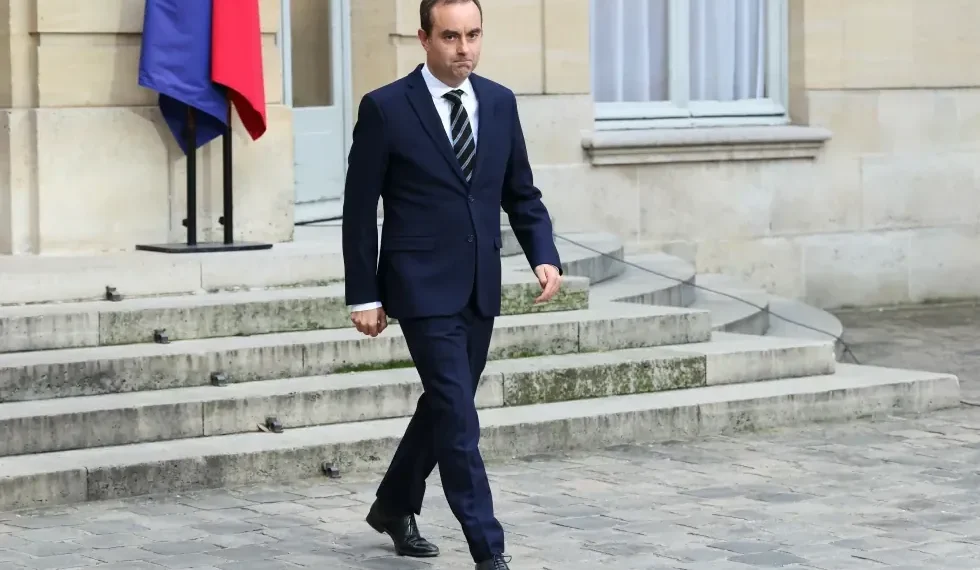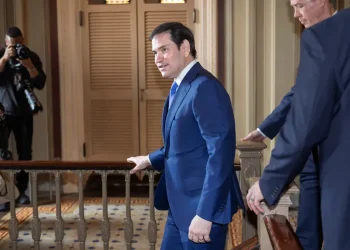French Prime Minister Lecornu Resigns After Less Than a Month in Office
Published: October 6, 2025, 21:45 EDT
France was plunged into renewed political turmoil after Prime Minister Sébastien Lecornu resigned less than a month after taking office, leaving President Emmanuel Macron scrambling to form a new government amid growing opposition pressure and investor unease.
Macron Accepts Lecornu’s Resignation Amid Growing Political Strain
The Élysée Palace confirmed Monday that Macron accepted Lecornu’s resignation, just one day after the Prime Minister finalized his cabinet lineup. Lecornu had succeeded François Bayrou, becoming France’s fourth prime minister in a single year — a rapid turnover that underscores the instability gripping Macron’s administration.
The abrupt resignation stunned political observers and rattled financial markets, with France’s benchmark CAC-40 index falling nearly 2% on Monday compared to Friday’s close.
“This resignation signals a deep crisis in French governance,” said political analyst Philippe Morel on France Info. “It reflects the widening gap between the presidency and an increasingly fragmented parliament.”
Opposition Parties Call for Macron’s Resignation or Snap Elections
Macron’s political rivals moved quickly to capitalize on the government’s latest setback. The far-right National Rally (Rassemblement National) demanded that the president either dissolve parliament and call new elections or step down himself.
On the left, France Unbowed (La France Insoumise) echoed those calls, arguing that Macron had lost his legitimacy to govern.
“The President must face the reality that the French people no longer have confidence in this government,” a party spokesperson said in a televised statement.
The resignation adds to Macron’s mounting challenges as he navigates a divided National Assembly and a growing public perception of political gridlock.
Cabinet in Limbo as Newly Appointed Ministers Become Caretakers
Lecornu’s resignation came barely a day after he named his cabinet, leaving newly appointed ministers in an unusual position: effectively caretaker officials before their formal swearing-in ceremonies.
Agnès Pannier-Runacher, who was reappointed as Minister for Ecology, expressed frustration on X (formerly Twitter), writing: “I despair of this circus.”
Several ministers reportedly learned of Lecornu’s resignation through media reports, highlighting the disarray within the government.
Observers said the resignation could delay key legislative priorities, including France’s upcoming budget negotiations and planned reforms to labor and climate policies.
Criticism Over Cabinet Choices and Fiscal Record
Lecornu’s brief tenure had already faced criticism from across the political spectrum for his ministerial appointments. His decision to name former finance minister Bruno Le Maire as Minister of Defense drew widespread backlash, with critics pointing to Le Maire’s role in the country’s rising budget deficit.
“The same people responsible for economic mismanagement are being recycled into new positions,” said Socialist lawmaker Valérie Rabault. “It’s no wonder confidence has eroded.”
Despite these criticisms, key posts such as interior, foreign, and justice ministers remained largely unchanged. Conservative Bruno Retailleau stayed on as Interior Minister, Jean-Noël Barrot continued as Foreign Minister, and Gérald Darmanin retained the Justice Ministry — a sign that Lecornu sought continuity amid volatility.
Fragmented Parliament and Fading Majority
French politics have been marked by instability since Macron’s decision to call snap elections last year. The vote produced a fragmented legislature, with far-right and left-wing parties now holding more than 320 of the 577 seats in the National Assembly. Macron’s centrist alliance, together with conservative allies, controls around 210 seats — far short of an outright majority.
This fractured parliament has made governance increasingly difficult. Lecornu, upon taking office, promised to build consensus and pledged not to use the controversial Article 49.3 of the French Constitution, which allows the government to pass a budget without a parliamentary vote. Instead, he vowed to seek compromise with opposition lawmakers and trade unions.
His sudden resignation now leaves that promise unfulfilled and raises doubts about Macron’s ability to maintain political stability during the remainder of his term.
Markets React as France Faces Political Uncertainty
The prime minister’s departure sent shockwaves through financial markets. Paris’s CAC-40 index fell nearly 2% on Monday morning amid investor fears of prolonged political paralysis. Analysts warned that further instability could weaken confidence in France’s fiscal trajectory and reform agenda.
“The resignation injects fresh uncertainty into an already fragile political climate,” said Isabelle Fournier, chief economist at Crédit Industriel de France. “Investors are now questioning whether Macron can deliver the structural reforms France needs to sustain growth.”
Macron’s Search for a Successor
The Élysée has not yet announced Lecornu’s replacement, but sources close to the presidency told Le Monde that Macron is considering several candidates from both centrist and moderate conservative circles.
Analysts expect Macron to choose a figure with experience in coalition management and parliamentary negotiation — someone capable of stabilizing relations with opposition blocs while preserving the president’s reformist agenda.
However, with public trust in the government at its lowest level in years, Macron faces a daunting challenge to restore confidence both at home and abroad.
This article was rewritten by JournosNews.com based on verified reporting from trusted sources. The content has been independently reviewed, fact-checked, and edited for accuracy, neutrality, tone, and global readability in accordance with Google News and AdSense standards.
All opinions, quotes, or statements from contributors, experts, or sourced organizations do not necessarily reflect the views of JournosNews.com. JournosNews.com maintains full editorial independence from any external funders, sponsors, or organizations.
Stay informed with JournosNews.com — your trusted source for verified global reporting and in-depth analysis. Follow us on Google News, BlueSky, and X for real-time updates.














